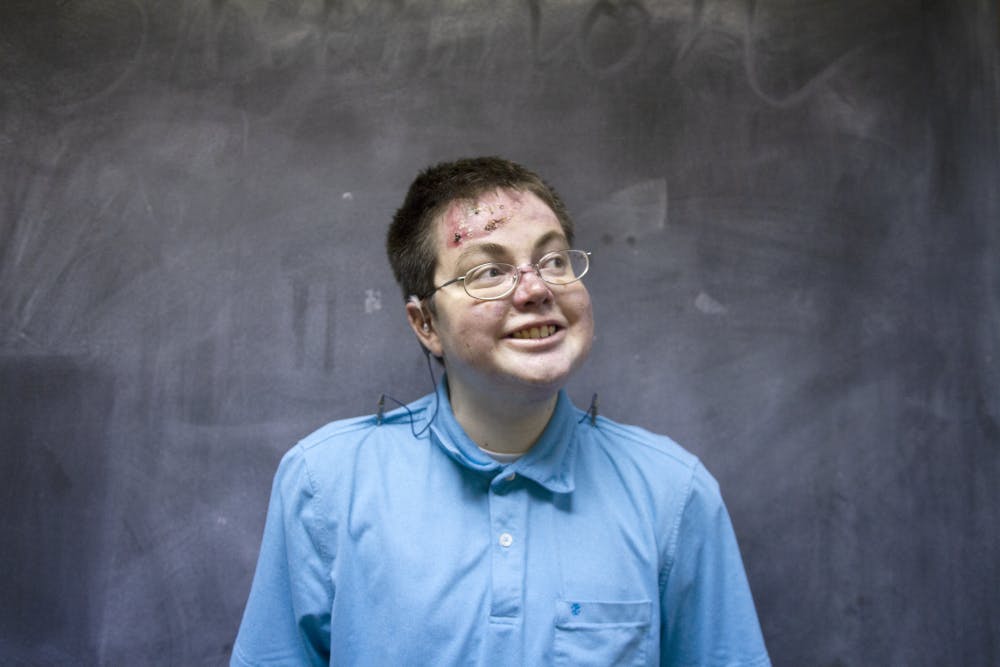Straw Ban: “Suck It, Pollution,” or “Suck it, Disabled People?”

For as long as I have followed environmental policy, it’s been clear that humans excel at one thing: defiling and polluting our planet. Environmentalists have made progress in the past few years, most notably with the Paris Agreement. However, the current administration’s Environmental Protection Agency clearly could not care less about reducing pollution. Faced with this dismaying situation, environmentalists are right to take matters into their own hands and advocate for cutting pollution like plastic waste, but it’s important to consider the unintended consequences.
The recent craze sweeping the nation is the idea to ban plastic straws, inspired in part by a viral video of a sea turtle that was horribly injured by one. The amount of plastic waste in our oceans and landfills is truly abhorrent, and activists are rightly pressuring cities and companies to reduce plastic waste. Faced with this public outcry, locales like Seattle and Vancouver, among others, have recently passed plastic straw bans, and Starbucks has promised to stop using plastic straws as well.
While the people supporting plastic straw bans are well-intentioned, they are severely misguided. In their shortsighted rush to ban plastic straws, they have missed two critical facts. First, according to a study published in Marine Policy, straws account for less than 0.03 percent by weight of plastic pollution entering the oceans every year, so the straw ban is at best performative environmentalism.
More importantly, plastic straws are essential for many disabled people. In part because straws are so ubiquitous, able-bodied people fail to realize how miraculous these simple devices are for anyone with a disability. With straws, it became possible for millions of disabled people to go anywhere without worrying about becoming dehydrated, spilling their drink everywhere or aspirating it into their lungs.
Where able-bodied people see waste, I see a miraculous device that opens up the world to people like me who have disabilities. Able-bodied people have proposed that we use alternatives to plastic straws, such as paper, metal, glass or biodegradable straws, but all of those options have major drawbacks for people with disabilities. For example, metal straws are unusable for people with tremors or sensory issues. Since disabled people often take longer to drink, paper straws do not work because they often disintegrate before we finish, and they do not handle high temperatures well.
This chart shows why other alternatives cannot replace plastic straws for disabled people:
Types of reusable straws and risks they pose for a variety of disabled people. #strawban
— sb. (@sarahbreannep) May 21, 2018
[Image description in thread.] pic.twitter.com/g40RPk4LRo
Able-bodied people have suggested we carry around straws that work for us instead of relying on restaurants to have them, but that has problems of its own. First, that’s one more expense for disabled people, who are already likely to have to suffer lower income and extremely high medical costs. Second, it is unreasonable to expect disabled people to be able to physically carry straws with them and keep them sanitary.
The burden and expense of reducing plastic waste by a measly 0.03 percent should not fall on disabled people, who are already oppressed and excluded by society. We must save the planet and reduce pollution, but environmentalists must realize that it is unethical to force already marginalized groups to pay the price. Blanket plastic straw bans are irresponsible, unreasonable and immoral.
To better serve people with disabilities while still cutting down on plastic waste, restaurants and regulators should switch from a ban to an opt-in model: Just have people ask for a straw instead of getting one automatically. This will significantly reduce the usage of plastic straws without hurting disabled people. That way, those who need plastic straws can still get them and those who don’t can decide not to use them.
Cities and establishments should reverse their plastic straw bans and target the actual causes of plastic waste. If you actually care about both plastic waste and human dignity, focus your efforts on banning plastic balloons, bags and fishing nets, all of which create far more plastic waste than straws do. Save the planet without forcing disabled people to suck it.
More from The Rice Thresher
Turning heads, changing minds in difficult times
It goes without saying that we live in challenging times.
Rice should prioritize student works in public
If you have been going to class lately, you may have noticed the new “Repair Station” sculptural installation near Herzstein and Lovett Hall.
Paralysis in the neoliberal university
Trump’s attacks on university admissions and scholarship have laid bare the structural contradictions at the heart of the neoliberal university, viscerally embodied in the recent abduction of Columbia University student activist Mahmoud Khalil by ICE agents.


Please note All comments are eligible for publication by The Rice Thresher.